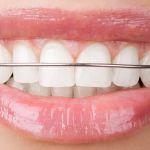What is Periodontitis and How Can You Prevent It?
- 1. What is Periodontitis?
- 2. Symptoms of Periodontitis
- 3. Causes of Periodontitis
- 4. How to Prevent Periodontitis
- 5. Treatments for Periodontitis
- 6. Real-Life Stories and Cases
- 7. Why Choose Dentistry Toothtruth for Your Dental Needs
1. What is Periodontitis?
Periodontitis is a severe gum infection that damages the soft tissue and destroys the bone that supports your teeth. This condition is common but can lead to tooth loss if left untreated. It is the result of poor oral hygiene that allows plaque to form on teeth and harden. This plaque buildup leads to inflammation of the gums, and if not treated, it can cause severe damage to your dental health.
Unlike gingivitis, which is a milder form of gum disease that is reversible with proper care, periodontitis requires more intensive treatment and can cause permanent damage to your gums and teeth. It's important to recognize the symptoms of periodontitis early on to prevent further complications.
2. Symptoms of Periodontitis
Recognizing the symptoms of periodontitis early can help you seek treatment before it worsens. Common symptoms include:
- Gum Bleeding: Gums that bleed easily when brushing or flossing are a sign of gum disease.
- Receding Gums: Gums that pull away from your teeth, making the teeth appear longer, are indicative of periodontitis.
- Persistent Bad Breath: Chronic bad breath or a bad taste in the mouth can be a result of the infection in your gums.
- Loose Teeth: As the bone supporting the teeth deteriorates, teeth may become loose or shift in position.
- Painful Chewing: Pain while chewing or a sensitivity to hot or cold can also be signs of gum disease.
If you experience any of these symptoms, it's important to consult a dentist immediately to prevent further complications.
3. Causes of Periodontitis
Periodontitis is primarily caused by poor oral hygiene that encourages plaque to form on teeth, leading to inflammation of the gums. If this plaque is not removed by brushing and flossing, it can turn into tartar, which can only be removed by a dentist. Other causes and risk factors include:
- Smoking or Chewing Tobacco: These habits increase the risk of gum disease and make it harder for your gums to heal.
- Genetics: Some people may be more genetically predisposed to gum disease due to a family history of periodontitis.
- Uncontrolled Diabetes: High blood sugar levels can lead to gum infections and more severe forms of periodontitis.
- Medications: Certain medications can reduce saliva flow, which helps protect the gums, making them more vulnerable to infection.
- Poor Nutrition: A diet low in important nutrients, such as vitamin C, can impair your gums’ ability to heal.
By understanding these risk factors, you can take steps to reduce your chances of developing periodontitis.
4. How to Prevent Periodontitis
The best way to prevent periodontitis is through proper oral hygiene and regular dental check-ups. Here are some steps you can take to protect your gums and teeth:
- Brush and Floss Regularly: Brushing twice a day and flossing daily are the best ways to prevent plaque buildup and gum disease.
- Use an Antiseptic Mouthwash: An antiseptic mouthwash can help reduce bacteria in the mouth and prevent gum infections.
- Regular Dental Visits: Visiting your dentist for routine cleanings and check-ups can help detect early signs of gum disease before it progresses to periodontitis.
- Stop Smoking: Quitting smoking improves your gum health and lowers your risk of gum disease.
- Eat a Balanced Diet: A diet rich in fruits, vegetables, and essential nutrients can help maintain healthy gums and teeth.
By following these steps, you can significantly reduce your risk of developing periodontitis and maintain your overall oral health.
5. Treatments for Periodontitis
Periodontitis treatment depends on the severity of the disease. The primary goal of treatment is to remove the infection, prevent further damage, and restore gum health. Some common treatments include:
- Scaling and Root Planing: A deep cleaning procedure that removes plaque and tartar from below the gumline and smooths the tooth roots to help the gums reattach.
- Antibiotics: Your dentist may prescribe antibiotics to control infection and reduce inflammation in the gums.
- Flap Surgery: In cases of severe periodontitis, surgical procedures may be necessary to remove infected tissue and restore the gumline.
- Bone Grafts: If the bone supporting your teeth has been damaged, bone grafts may be used to stimulate the growth of new bone tissue.
Prompt treatment can help prevent tooth loss and other complications associated with periodontitis.
6. Real-Life Stories and Cases
Many people have experienced success in preventing or treating periodontitis through proper oral care and treatment. For example, John, a 45-year-old man, visited his dentist after noticing his gums were bleeding and receding. After a deep cleaning procedure and following his dentist's advice on maintaining oral hygiene, John was able to reverse the early stages of gum disease and prevent further issues.
Another case involves Lisa, who had been struggling with diabetes and was at high risk of periodontitis. After adopting a more balanced diet, quitting smoking, and following her dentist's recommended treatments, Lisa managed to improve her gum health and prevent tooth loss.
7. Why Choose Dentistry Toothtruth for Your Dental Needs
If you're concerned about periodontitis or need expert advice on maintaining your oral health, Dentistry Toothtruth is here to help. Our team of experienced professionals offers comprehensive dental care, including periodontal treatments, preventive care, and education on how to keep your gums and teeth healthy.
Visit Dentistry Toothtruth today to schedule a consultation and take the first step toward better gum health and overall well-being!







 Ernstberger Orthodontics5.0 (326 review)
Ernstberger Orthodontics5.0 (326 review) Lightfoot Center for Laser Periodontics5.0 (69 review)
Lightfoot Center for Laser Periodontics5.0 (69 review) Kanawha City Pediatric Dentistry4.0 (163 review)
Kanawha City Pediatric Dentistry4.0 (163 review) Dr. Dental: Dentistry & Braces4.0 (711 review)
Dr. Dental: Dentistry & Braces4.0 (711 review) North Atlanta Family Dentistry4.0 (482 review)
North Atlanta Family Dentistry4.0 (482 review) Richmond VA Dental Arts4.0 (181 review)
Richmond VA Dental Arts4.0 (181 review) The Importance of Oral Health Education During Pregnancy for a Healthy Pregnancy
The Importance of Oral Health Education During Pregnancy for a Healthy Pregnancy Best Tips for Brushing Your Teeth Properly for Healthy Gums: Essential Techniques for Oral Health
Best Tips for Brushing Your Teeth Properly for Healthy Gums: Essential Techniques for Oral Health Why Skipping Dental Checkups Can Lead to Bigger Oral Health Problems
Why Skipping Dental Checkups Can Lead to Bigger Oral Health Problems Advantages of Porcelain Dental Restorations
Advantages of Porcelain Dental Restorations How Can Diabetes Cause Tooth and Gum Problems? Preventing and Managing Oral Health Issues
How Can Diabetes Cause Tooth and Gum Problems? Preventing and Managing Oral Health Issues Healthy Habits for Promoting Good Oral Health and Hygiene: Tips for a Healthy Smile
Healthy Habits for Promoting Good Oral Health and Hygiene: Tips for a Healthy Smile